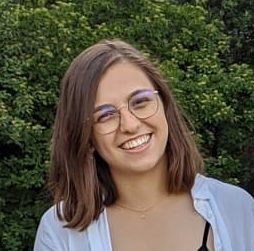
Editor’s note – announcement
Did you ever have the feeling that you need the world to stop for a bit just so you can think for a second? Just to slow things down to give you some time to understand what is going on.
When we talk about language, we immediately think of words, of our mother tongue or daily-life communication. But when one puts “art” next to it, all of a sudden a world of possibilities opens up in front of us. Because, by definition, art is the very opposite of prosaic communication. Language is still the means through which art exists. For instance, sometimes artists use words to express themselves, which is why we have literature. But it’s because of the fact that they do it in such a special way that the words become art.
Once, I was on a train when my reading was interrupted by a loud conversation in the seats in front of me. I raised my eyes and saw a group of 4 young people talking to a man who, with all cues taken into consideration, was entirely drunk. They were talking in Dutch, so all I could do was gaze from a distance. I did recognize some words from my limited vocabulary. “Moeder”, “familie”. I left the train and to be honest, I was hoping to leave the drunkenness behind me so I could concentrate on my book. But that wasn’t the day for reading.
I took the bus to continue my journey – it was one of those lovely days when NS has problems with their trains and you have to deviate and add half an hour to your travel time – and there he was, the drunken man. However, this time, the group of young people wasn’t with him to keep him entertained. So, he started talking to himself. The range of emotions he went through during this monologue was quite impressive to say the least. I still had no clue about the subject matter. Yet, I could sense his enthusiasm shift into melancholy. And that bit of sadness in his voice quickly escalated to anger. The only sound audible on the bus was his voice. It was as if everybody else was still, nothing moved. It was as if his monologue was creating tension, and it probably was. We tend to be scared of, or at least bothered by, an angry drunken man talking to himself loudly on public transport: prejudice or precaution? Anyways, at some point, he laughed. It was that bitter, ironic and desperate laughter. I couldn’t see him, but he might have cried too. For those 30 minutes on that bus, he was begging for someone to answer.
This whole situation started raising all sorts of questions in my mind. Maybe words were his only companion, the ones that followed him in his mind. Perhaps the same voices that disturbed and haunted him were the ones that brought the comfort of familiarity. Words might be the only ones who welcomed him, who didn’t fear or felt bothered by him. They may have been his only bitter friends that just loved to hurt him. Naturally, we sometimes lack words to describe what we are going through. But sometimes, all we have left are words.
Naturally, we sometimes lack words to describe what we are going through. But sometimes, all we have left are words.
They don’t need to come out of our mouths, they don’t need to make sense to others. They make sense to us, at the same time that they confuse us until we no longer understand a single thing. If the only thing the drunken man had was his words, the only thing I had were my wonders of what these words might mean.
This month, you will read a series of articles that deal with language. We are going to talk about communication and language use in the world of art – after all, we are an art magazine. But I sincerely hope that you, dear reader, start questioning your words, thinking about your language and observing your ways of communication. I hope that our writings trigger that curious light in your head and that you take away a word or two that you understood and start creating your own world with them. I hope this month’s pieces are to you what that drunken man was to me: confusing, unclear, triggering and, most importantly, enlightening.


Did you ever have the feeling that you need the world to stop for a bit just so you can think for a second? Just to slow things down to give you some time to understand what is going on.

Dear reader,
Does it suffices to say “once upon the time” for you to guess what will come next?

Life has not been easy. Let me tell you something: writing your thesis while doing another hundred things on the side is not the smartest idea I had in life.